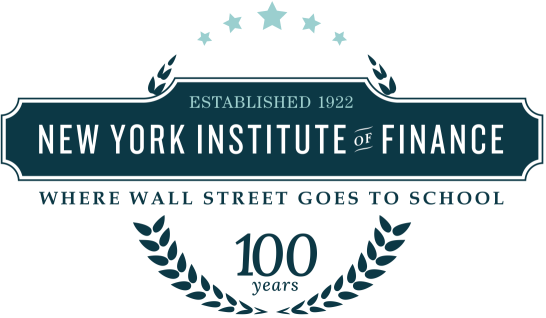Advanced Derivatives Professional Certificate
Gain a deep understanding of derivative instruments. Learn the essential underlying mathematics in an intuitive, accessible fashion. Develop expertise in the theory and practice of derivatives valuation including the use of finite difference techniques. Understand volatility and variance products and volatility trading strategies.
CPE Credits: 35
Click here to download course curriculum
Prerequisite knowledge:
- Familiarity with derivative instruments
- Intermediate to advanced MS Excel skills
- Intermediate probability and statistics
- Basic calculus, including partial differentiation and integration
This Professional Certificate comprises the following courses:
- Derivative Mathematics (Days 1 - 2)
- Advanced Tools for Derivatives Valuation (Days 3- 4 )
- Volatility and Variance Swaps (Day 5)
Module 1: Review of Derivatives Basics
- The no-arbitrage pricing principle
- Objective vs. risk-neutral probabilities
- Forwards and Futures
- Swaps
- Options
- Put-Call Parity
Module 2: Discrete Processes for Asset Prices
- Discrete stochastic processes
- The Markov property
- The Martingale property
- Quadratic variation
- The binomial model
- The trinomial model
Module 3: Discrete Time and State Pricing Models for Derivatives
- A binomial formula for European options
- American options
- Options on assets paying dividends
- Options on stock indices, bonds, currencies, futures and commodities
Module 1: Continuous Processes for Asset Prices
- The Wiener process as the limit of a random walk
- Brownian motion and Ito processes
- Basic stochastic integration
- Functions of stochastic processes
- Ito's lemma
- Jump-diffusion processes
Module 2: Continuous Time and State Pricing Models for Derivatives
- No-arbitrage in continuous time
- The Black-Scholes-Merton partial differential equation
- Black-Scholes-Merton formulas for options
- The Greeks
- American options in continuous time
Module 3: Volatility
- Historical vs Implied Volatility
- Estimating volatility
- Implied volatility surfaces: Skews and smiles
- GARCH models
- Stochastic volatility
Module 1: Exotic Options and Path Dependency
- Strong vs. weak path dependency
- Asian Options
- Barrier Options
- Exchange options
- Lookback options
Module 2: Overview of Numerical Methods
- Valuation techniques for path dependent options
- Monte Carlo basics
- Finite difference methods
- Numerical Integration
Module 3: Monte Carlo Methods for Derivatives Valuation
- Monte Carlo methods applied to discrete models
- Monte Carlo methods applied to continuous models
- Getting to the Greeks
- Techniques for accelerating convergence
- Pros and Cons of Monte Carlo techniques
Module 1: Finite Difference Methods: One Factor Models
- The fundamental PDE and boundary conditions
- Explicit finite difference methods
- Implicit finite difference methods
- Crank-Nicolson method
Module 2: Finite Difference Methods: Two Factor Models
- Explicit finite difference methods
- Alternating direction implicit method
- Hopscotch method
Module 1: Volatility Instruments
- Volatility swaps
- Variance swaps
- Gamma swaps
- Options on variance
- VIX futures and options
Module 2: Valuation and Hedging
- Vanilla options: Delta hedging and P&L path dependency
- Static replication of variance swaps
- Log contract replication
Module 3: Volatility Trading
- Volatility trading with vanilla options
- Trading volatility instruments
- Forward volatility trading
- Relative value trading
- Dispersion trades: Correlation trading
- Variance term structure trading
- Skew and convexity trading
Module 4: Desk Ready Skills Knowledge Check
